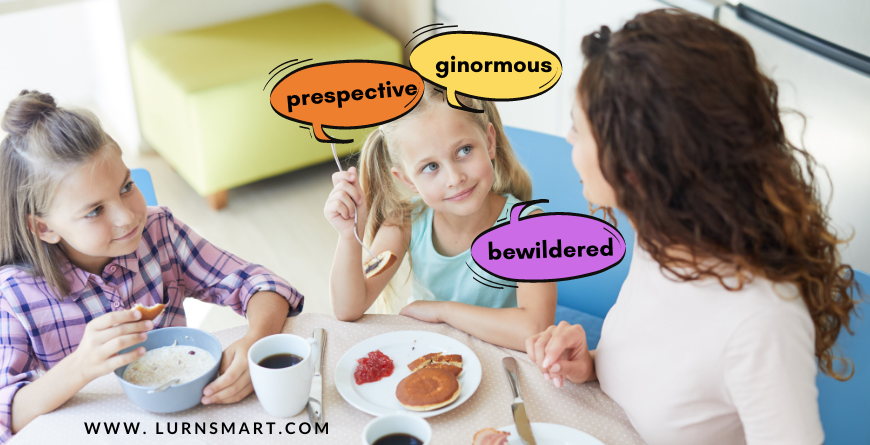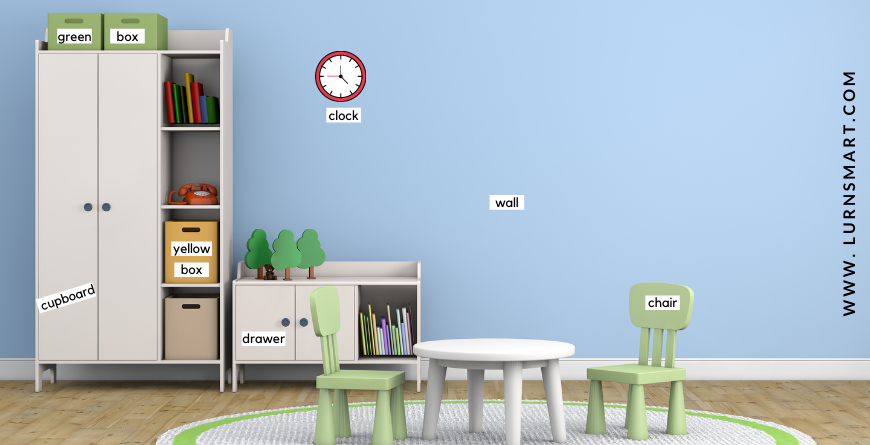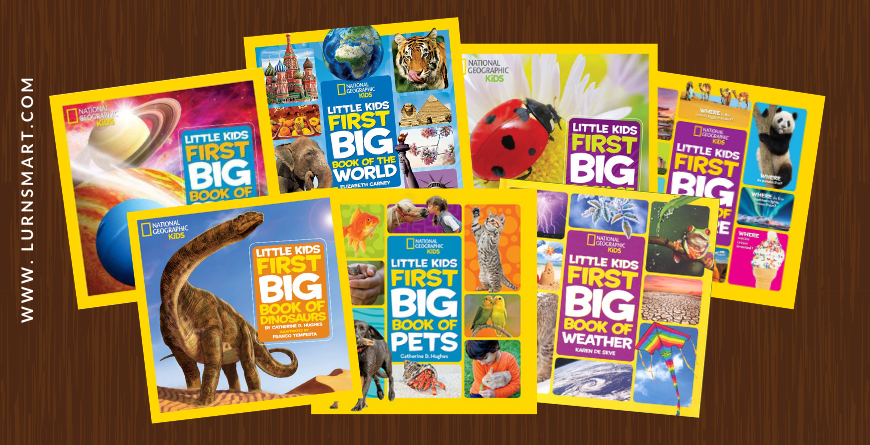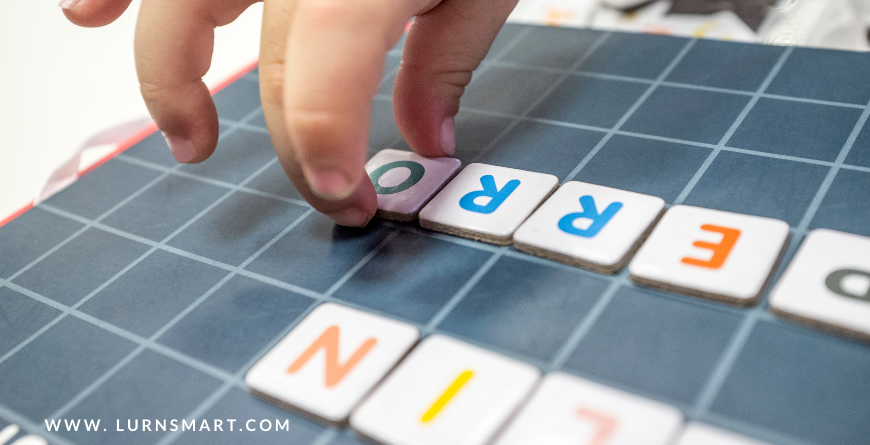Do you know that helping kids build their English vocabulary can make their ‘learning to read‘ experience easy and interesting?
For instance, when a child sounds out a word and the word is familiar, it gives the child the confidence to continue reading.
On the contrary, if most of the words that the child decodes are unfamiliar, the child might begin to second guess his or her ability to read and his might lead to frustration.
Hence, having a good understanding of basic words in English is essential to make a child’s reading journey easy and exciting!
Moreover, research shows that a well-rounded vocabulary apart from helping a child learn to read, can:
- Improve reading comprehension.
- Enhance knowledge.
- Build confidence.
- Increase social and emotional intelligence.
- Provide success in school and life.
So in this post, I’m going to share with you 12 killer ways to build English vocabulary for kids.
So read on!
12 Killer Ways to Build English Vocabulary for Kids
1. HAVE ENGAGING CONVERSATIONS:

Speaking to children is powerful and it is the secret to adding new words to their vocabulary!
A research paper entitled “Early Vocabulary Growth” published by the University of Minnesota, states that mothers who speak frequently to their infants have their children learn almost 300 more words by age 2 than the children whose mothers rarely spoke to them.
Therefore, talk about anything and everything in your child’s environment!
Talk about your child’s day and what you are doing together. Describe what you see when you are out for a walk.
Talk about your day at work and don’t forget to describe the feelings that you felt
and the emotions that you experienced as they will help your child put his or her
feelings and emotions in words later on.
To sum up, the more you talk, the more words your child will learn!
2. USE REAL WORDS:

“Look! There’s a bow-bow (dog)!”
“Here’s your yum-yum (food)!”
Words like ‘bow-bow’ and ‘yum-yum’ might sound cute but it is important to replace this cuteness with real words.
Because children are like sponges, and especially during the first couple of years, they have an amazing ability to learn!
So there is no need to oversimplify the way we talk to them!
By the way, if you speak a different language at home, I suggest you use English words along with the words in your language.
If you are someone who thinks that using two languages might confuse your child, you are so wrong!
There is tons of research to prove that children especially during their early years have an incredible ability to learn languages.
Check out this research article “Bilingualism: Start early and earn all your benefits!” on the Harvard University website to learn how babies are the ‘fastest language learners’ in the world.
This article also talks about the many benefits that can result from exposing little children to multiple languages during the early years.
3. DARE TO USE BIG WORDS:

Oftentimes, as parents, we feel that our children might not understand if we use big words, but it is so not true!
Research shows that for a child, the effort needed to learn the word ‘cat’ and the word ‘Tyrannosaurus’ is the same.
Therefore, it doesn’t matter how big the word is, if the word is used often in the child’s environment, it will be certainly added to the child’s vocabulary.
Even if the child does not use those words immediately, you can be certain that the child will eventually use them.
Because the child’s receptive understanding of language develops long before expressive language does. Meaning, the child’s ability to understand words develop long before the child can use those words.
So dare to use new and big words coz’ very soon they will become a part of your child’s expressive vocabulary!
4. LABEL THINGS AROUND THE HOUSE:

An easy and effective way to teach new vocabulary to little children, especially if they are English learners, is to label objects around the house.
Here are some examples!
‘wall’ ‘door’ ‘clock’ ‘toys’ ‘chair’
You can also take this a step further by adding adjectives to labels.
‘big window’ ‘green box’ ‘brown chair’
Apart from building English vocabulary, labeling things around the house can increase your kid’s print awareness and print motivation, two important pre-reading skills that will prepare your child for reading success.
5. READ ALOUD OFTEN:

Books contain many words that people often don’t use while speaking!
So reading to your child frequently can help your child learn a lot of new words!
According to the New York Times bestseller “The Read-Aloud Handbook” by Jim Trelease, “Books for kids contain 50% more words than regular conversation or TV.”
Another research study published by the Ohio State University states that, young children whose parents read to them five books a day enter kindergarten having heard about 1.4 million more words than kids who were never read to. That is a ‘million-word gap‘ between children who are frequently read to and children who aren’t read to.
So a smart move to expand your kid’s English vocabulary is to read, read and read often!
If you are not sure where to begin, then check out Scholastic’s Children’s Book List by Age.
6. USE A DICTIONARY:

Every time your child comes across a new word, it is important to explain the meaning in a fun, playful way!
But if you have an older child, it is wise to help your child get into the habit of looking up the meaning for words himself or herself.
A simple tip is to invest in a good children’s dictionary.
You can also help your child learn how to use an online children’s dictionary. This might be most helpful especially if your child is an English learner.
Because, apart from looking up the meaning, your child can hear and practice how the word is pronounced.
7. EXPLORE NON-FICTION:

Stories about monkeys and donkeys are interesting but when it comes to building vocabulary for kids, non-fiction is awesome!
So pick books on topics that your child is already interested in!
Like, car books for car lovers, dinosaur books for dinosaur lovers, and bug books for bug lovers.
The reason why I insist on non-fiction books is that your child can learn so many new words just from reading one non-fiction book.
I like the National Geography Kids books as they have a wide range of topics for children to learn and explore!
8. CREATE A WORD WALL:

Having a word wall is a great strategy that can help improve vocabulary for kids!
So pick a few words that you want your child to learn and write them down on chits of paper or sticky notes and stick them to your child’s learning wall.
A general rule of thumb would be to do 5 new words a week. You can also use a bulletin board for this activity.
Apart from expanding your kid’s English vocabulary, you can use the word wall to help your kid learn:
- Word spellings.
- Synonyms.
- Antonyms.
- Syllable Patterns.
- Homonyms, homographs, and homophones.
- and more!
9. WORD CARDS:

An interesting way to increase vocabulary for kids is to create word cards!
Pick 10-15 words per bunch and print them on cardstock and use a binder ring to hold the cards in place. You can also include the meaning and picture to make it more interesting.
Just go over the words once a day or once every two days and talk about the words and their meanings.
Most importantly, when you do this, don’t forget to praise your child when he or she learns a new word!
Make a big fuss if your child can use the word in a sentence correctly.
Because when you make learning words enjoyable and fun, your child will be motivated to learn more of it.
10. CONSTRUCT SILLY SENTENCES:

There is no point in learning new words if your child does not know how to use them in a sentence.
So the next time, your child comes across a new word, encourage your child to put it in a sentence.
Of course, offer help when needed!
But instead of turning this into a serious activity, construct silly sentences together to keep things light and interesting!
Here are some examples!
The grumpy crocodile ate a crab.
His blue dog has a crayon that is enormous!
Your fingers look microscopic!
11. PLAY WORD GAMES:

Word games make learning new words fun and interesting!
Here are our favorite word games:
- Zingo! Word Builder
- Scrabble
- Bananagrams
We got these word games when our son was 3 and they have grown with him.
What I like about these games is that you can play these games as a family. So make sure you give it a try!
12. ENCOURAGE STORYTELLING:

Storytelling enhances language skills and helps build vocabulary for kids.
Therefore, encourage your child to make up his or her own story!
Here are some things that you can do:
- Be curious and ask questions so you can introduce new words with similar meanings.
- Give simple definitions and make them relatable by providing an example from real life.
- You can also encourage your child to come up with his or her own example for new words.
Here’s an example!
Child: It is a big dog.
Parent: Yes! It must be humongous, just like the dog that we saw at the park the other
day. What else do you think looks humongous?
Final Notes:
Learning new words has many benefits so remember to:
- Make a big deal out of it.
- Praise extensively when your child learns a new word.
- Get into the habit of discussing a new word that you learned as a family while having dinner.
- Keep new words that your child learns active. Use them in your conversation.
- Create silly sentences together. Make it look like a fun game.
I hope you found the 12 Killer Ways to Build English Vocabulary for Kids useful.
If you did, share this post with your friends because sharing is caring 😉
If you are supporting your child to read at home, then you might want to read my blog post Teach Your Child to Read Using Phonics: The Ultimate 7-Step Guide for step-by-step instructions and all the necessary resources that you might need to help your child read and spell easily and efficiently.
Resources:
Owens, Jr., Robert E. (1996). Language development: An introduction (fourth edition). Boston, MA: Allyn and Bacon.
Stahl, Stephen A. (1999). Vocabulary development. Brookline, MA: Brookline Books.
